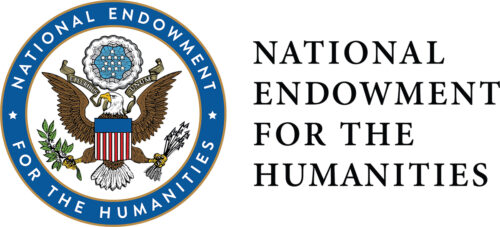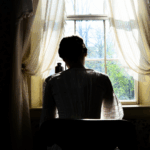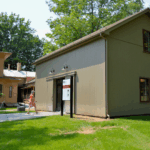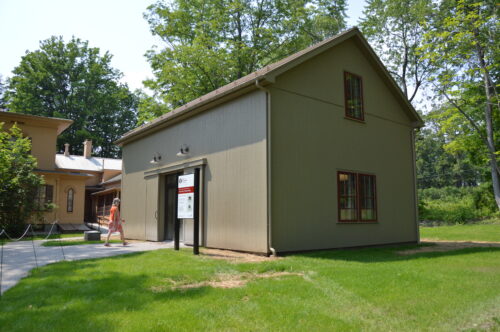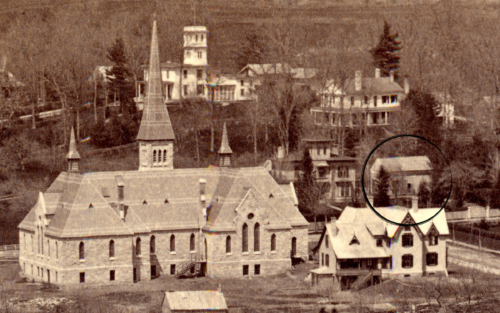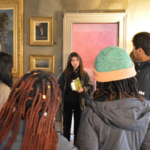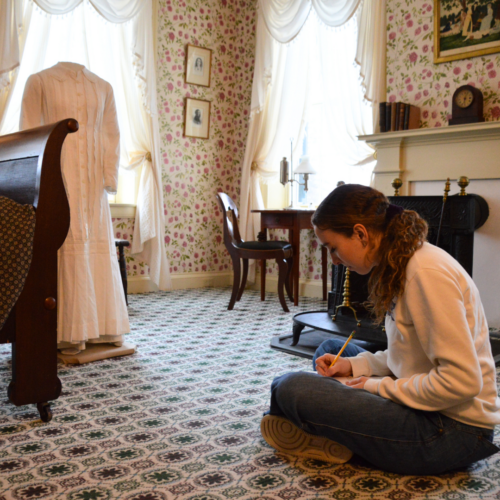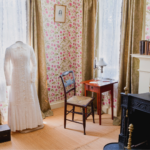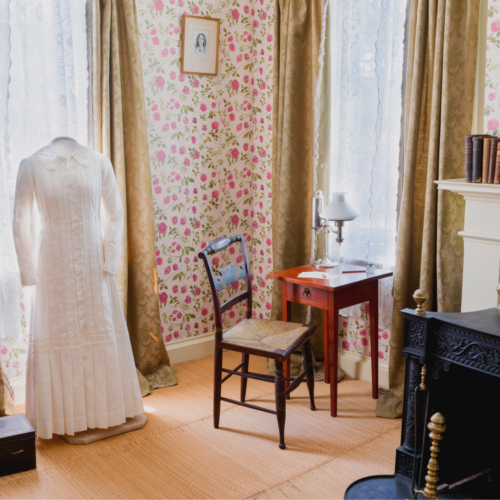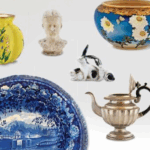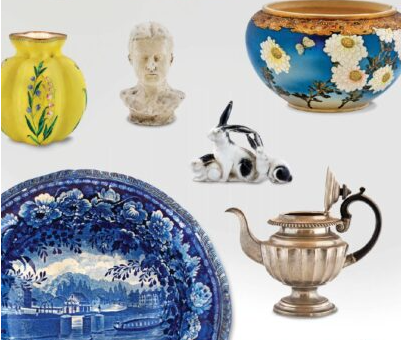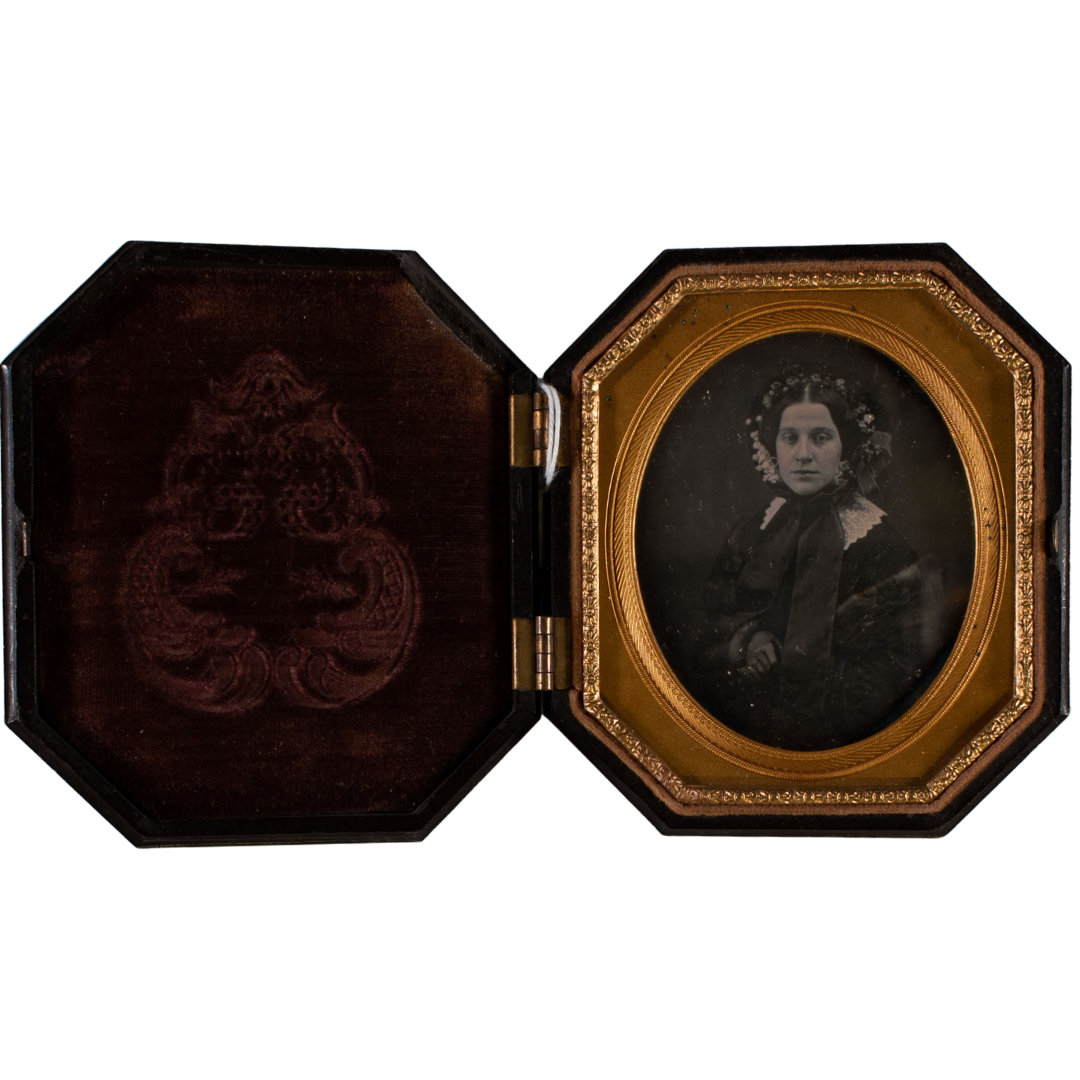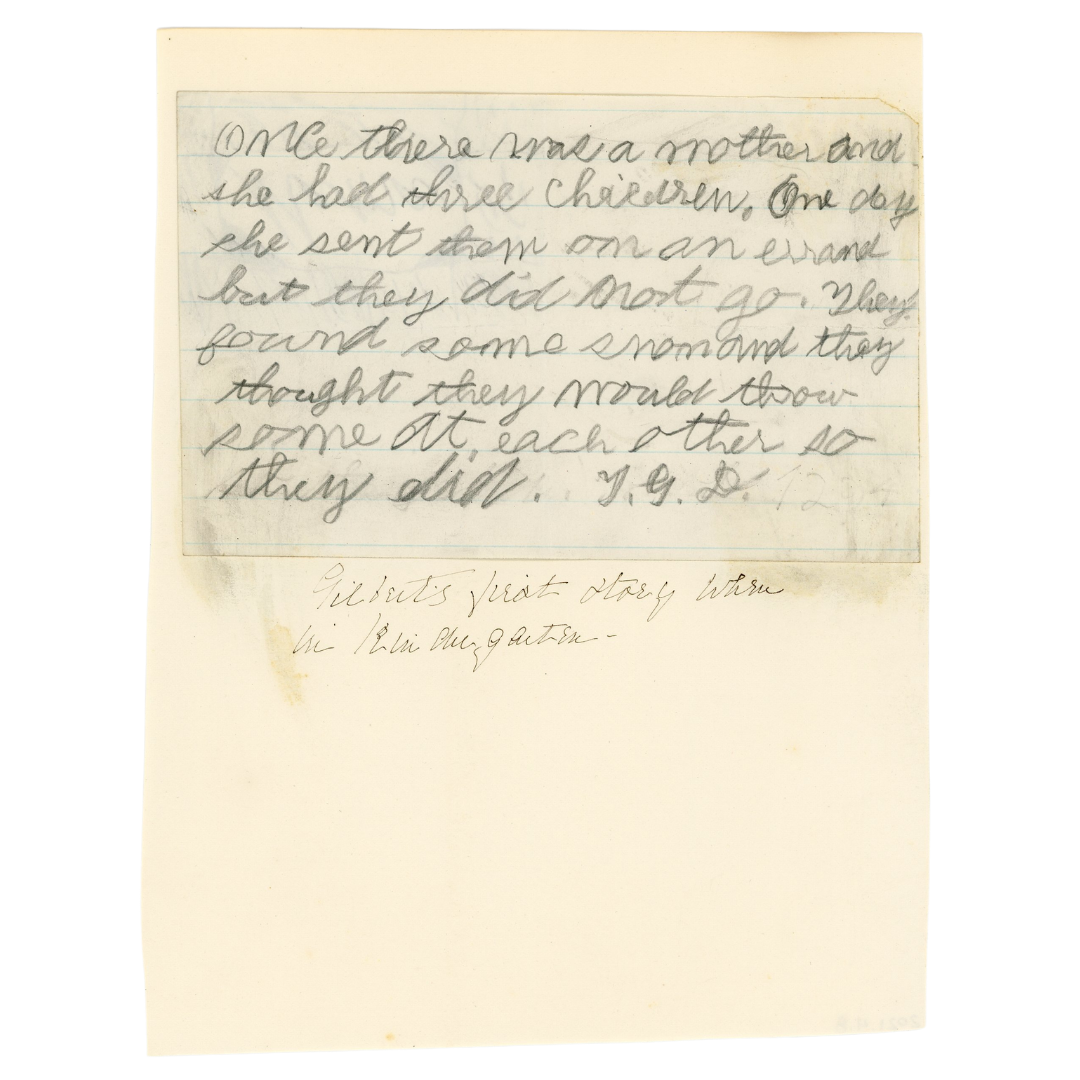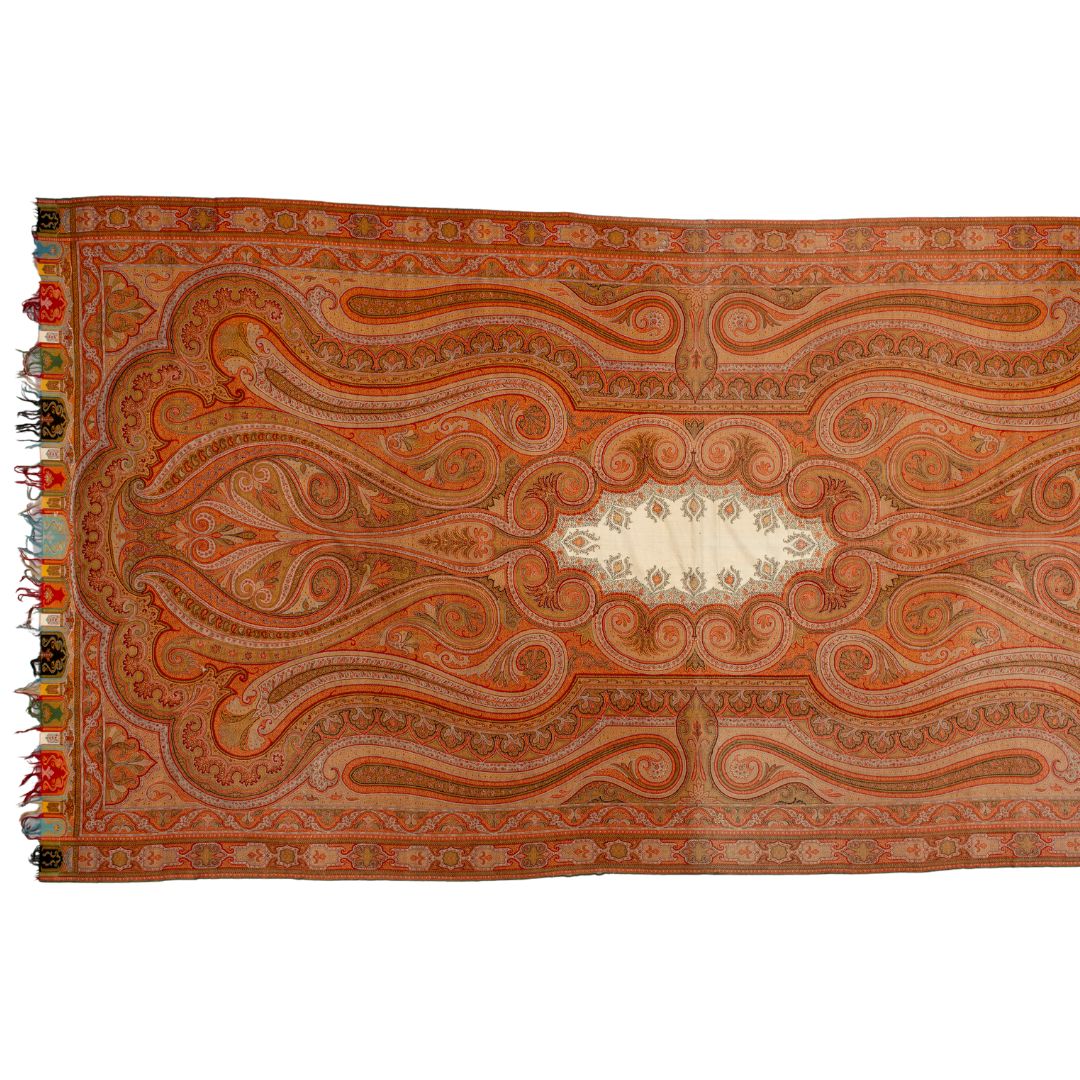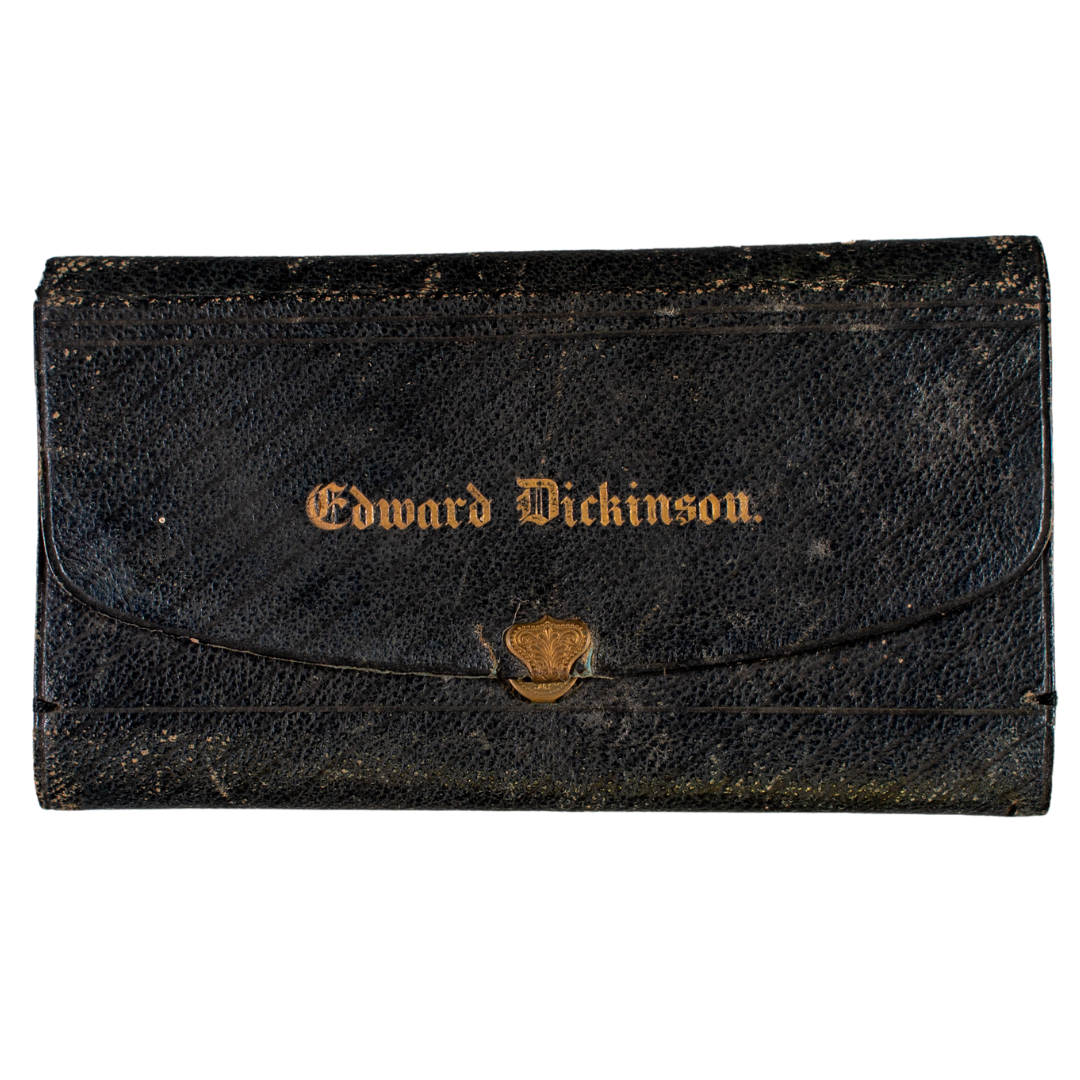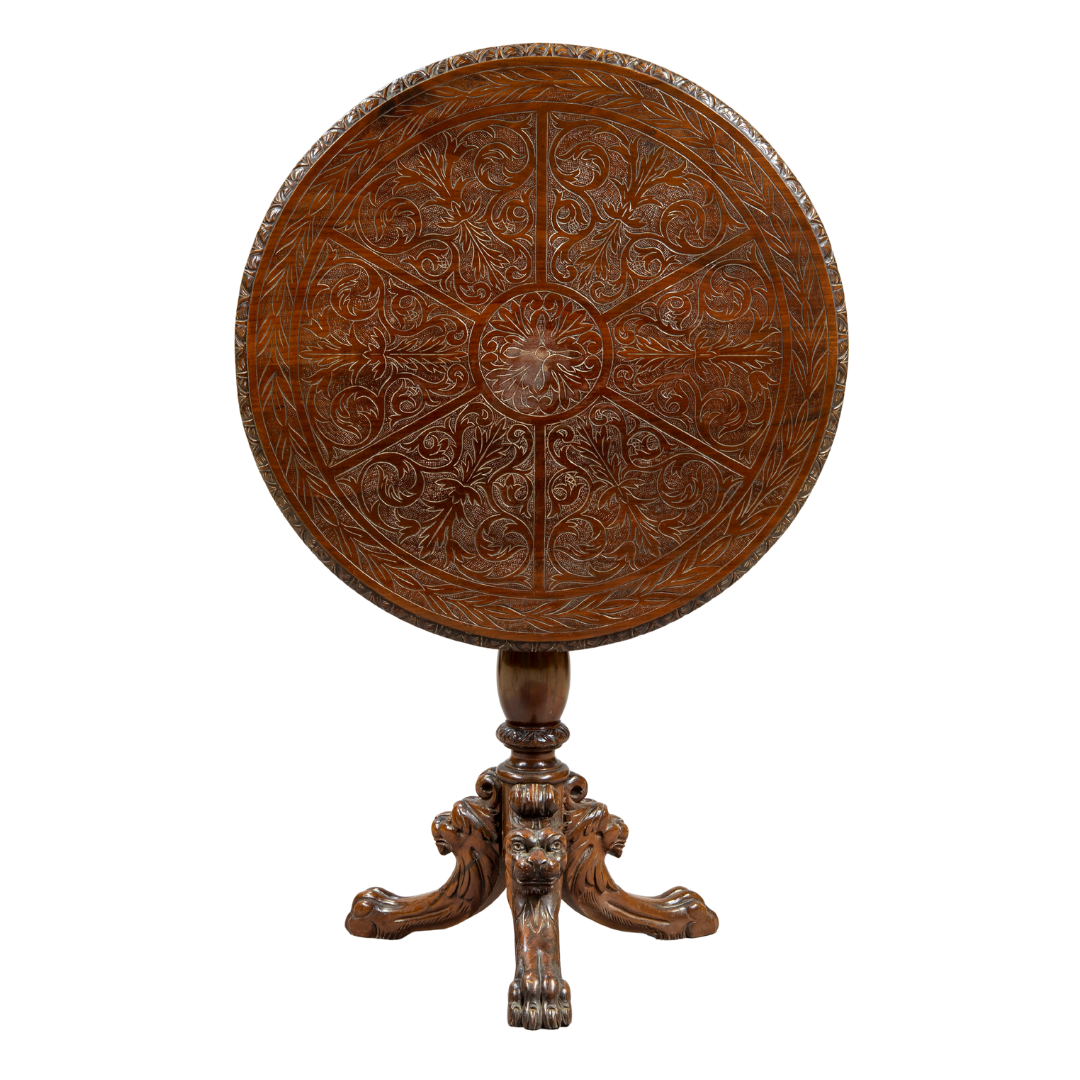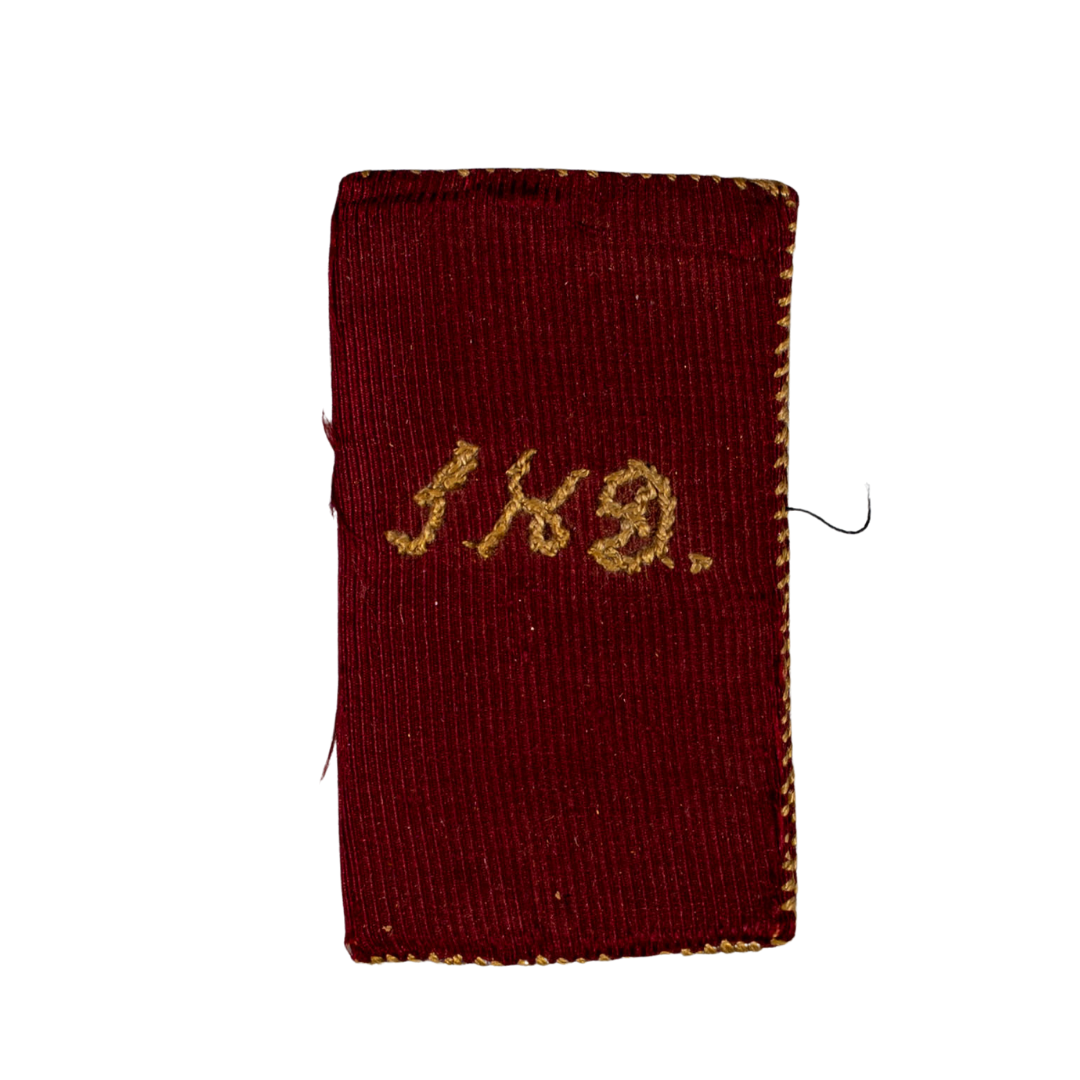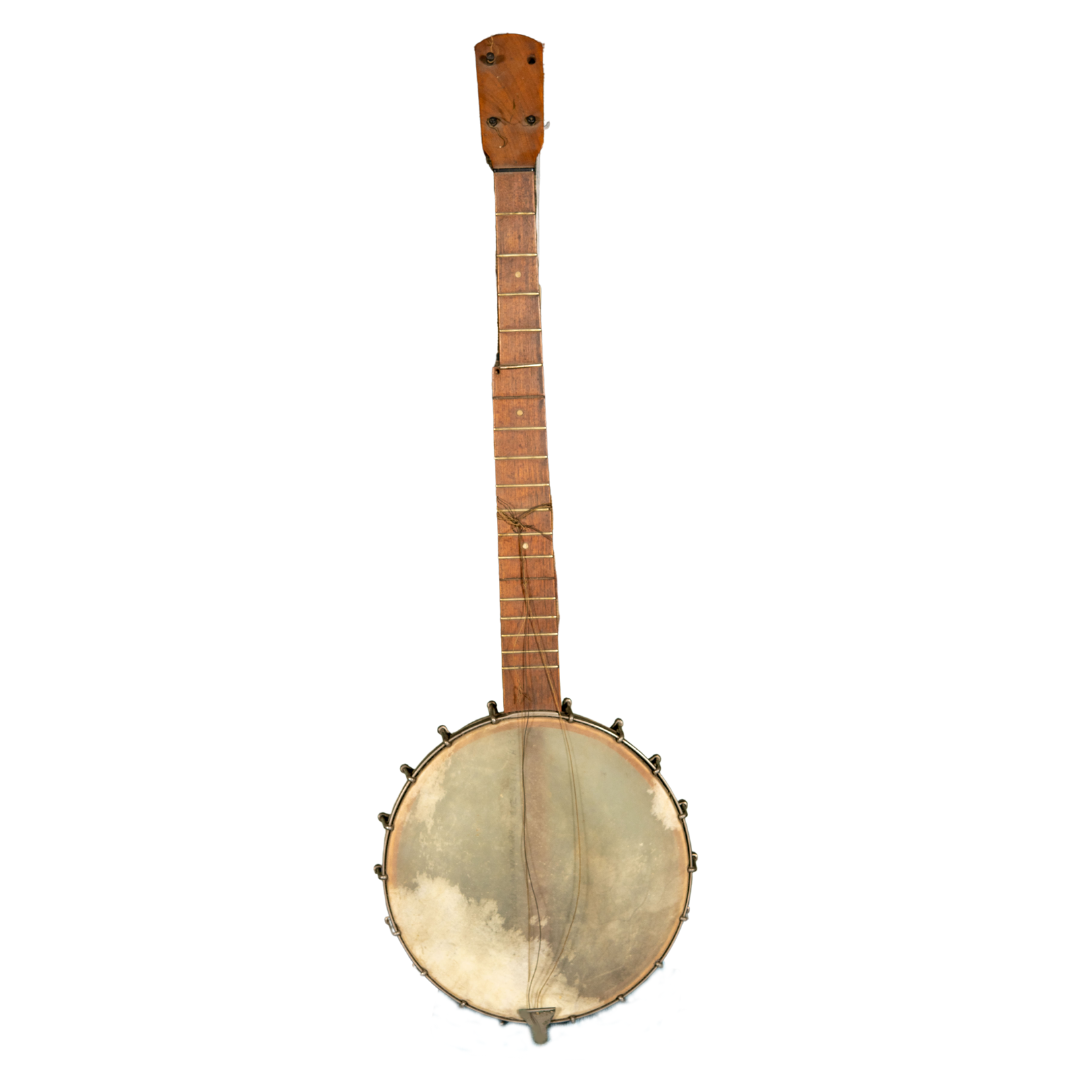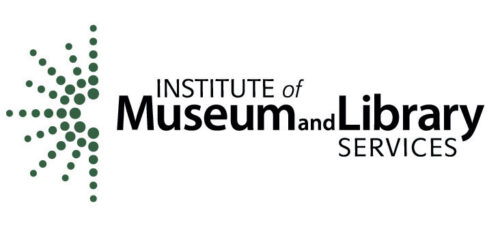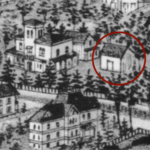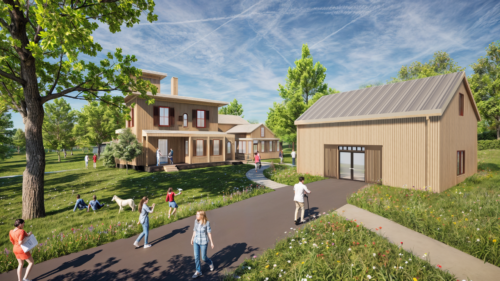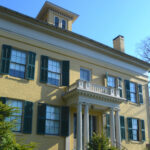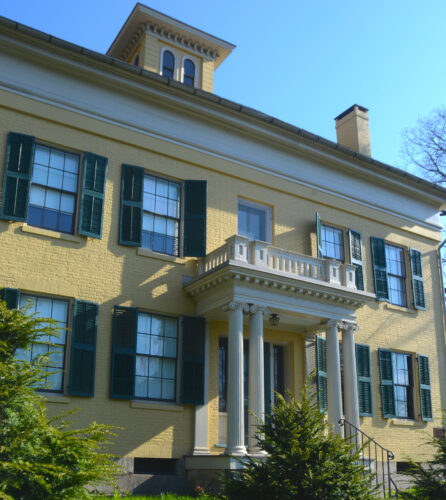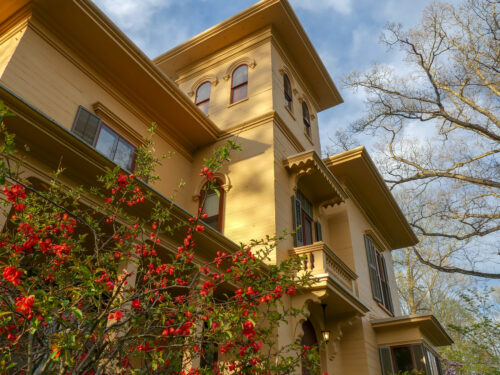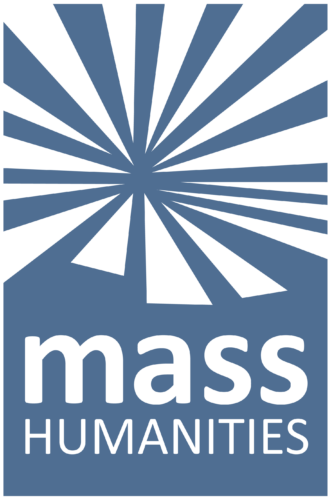Application deadline: March 6, 2026, 11:59pm ET
Designed for K-12 educators, this workshop will examine Dickinson’s poetry in light of the rhetoric of her day, as Americans grappled with a national identity one century on from the American Revolution. Through creative writing and engagement with contemporary poets, participants will also explore how Dickinson’s rule-breaking, revolutionary poetry sparks the imaginations of new generations.
Emily Dickinson Museum’s National Endowment for the Humanities Landmarks of American History and Culture Program
‘Revolution is the Pod’: Emily Dickinson’s American Poetry
Session I:
July 8 6:30-8:30PM ET live virtual session
July 19-24, 2026, in-person in Amherst, MA
Session II:
July 15 6:30-8:30PM ET live virtual session,
July 26-31, 2026, in-person in Amherst, MA
Application deadline, March 6, 2026
Learn more about the workshop:
Workshop Description and Schedule
Through this immersive exploration of Dickinson’s Amherst, small group coaching, and workshops led by world-class Dickinson scholars and contemporary poets, participants will:
- Gain skills in reading manuscripts and teaching with objects;
- Strengthen approaches to poetry and creative writing with students;
- Explore Emily Dickinson’s revolutionary poetry and consider its use in empowering students as both writers and thinkers.
In the poem “Revolution is the Pod,” Dickinson argues that “Revolution” is a flower that must be seasonally tended (in fact, pruned) to remain vital. The theme of revolution is especially pertinent to Dickinson not only because her experimental verse defied the poetic conventions of her time, but also because she lived during a historical moment defined by many consequential revolutions that shaped American history and identity. These include the American Revolution, just 44 years prior to her birth and already mythologized in New England; the Second Great Awakening and its sweep of religious revivals; ongoing industrial and scientific revolutions; and most significantly, the American Civil War. Because our own age is similarly marked by rapid technological change and deep political divide, Dickinson’s poems carry a special resonance.
The Summer Institute in the poet’s home of Amherst, Massachusetts, allows participants to spend an immersive week in Dickinson’s environment, enriching their understanding of her poetry and its broader context in nineteenth-century New England. Students will have access to the Homestead (1813), the poet’s birthplace and home for forty years; The Evergreens (1856), the home of her family next door and an integral part of her intimate world; as well as special collections of manuscripts and related material culture held by Amherst College’s Frost Library and Jones Library.
The workshop brings together faculty who have written or edited significant works about Dickinson in the past five years, including a new biography, a complete edition of her letters, and an Oxford Handbook. The proposed program highlights new scholarship on place (connecting Dickinson’s Amherst to the Nonotuck Homeland), the influence of Dickinson’s letters and networks on her poetry, her nineteenth-century media contexts, and her engagement with the political and scientific debates of her day. With her life and verse as a lens, the workshop also explores the changing landscape and demographics of New England; the rapid professionalization of science and impact of fossil discoveries; the intellectual connections between Dickinson and figures like Ralph Waldo Emerson and poet/potter David Drake; and Dickinson’s impact on contemporary poetry and culture.
In addition to plenary talks and workshops, participants will be divided into three learning cohorts, which meet periodically across the week. Supported by cohort leaders with strong backgrounds in teaching and Dickinson, these small groups allow participants to engage in the lively discourse with peers that energizes and inspires good teaching. During curriculum group meetings, participants will complete a template that outlines an outcome-based learning project useful for their unique teaching circumstances. This “curriculum artifact” might include a unit; professional development program for colleagues; service learning project; or curation of an electronic resource or collection (text set, primary source collection, slide deck). At the final learning cohort session on Friday, participants will use a feedback protocol endorsed by The National Writing Project that prompts shared learning and encourages further conversations between teachers after the workshop has ended.
Logistics (Stipend, Lodging, Meals, and Travel)
Stipend
Stipends are intended to compensate participants for their time commitment and to help defray the costs of participation, which may include expenses such as travel, lodging, and meals. Stipends are taxable income and amounts are determined by NEH based on the duration and format of the program. For 2026 ‘Revolution is the Pod’, participants who complete the one-week workshop receive $1300.
Lodging
Participants have the option to commute, reserve a hotel room for the week, or stay in Seelye Hall dormitory on the Amherst College campus from Sunday to Friday. Located in the center of downtown Amherst, Seelye is a 10-minute walk along paved sidewalks from Keefe Campus Center, where the workshop will be based, and a 10-minute walk along paved sidewalks to the Emily Dickinson Museum. Amenities in the dormitory include: First-floor laundry units, shared lounge spaces, and wifi. The dorm is first-floor accessible for wheelchair users. Please note that the dormitory is not air-conditioned. Individual air conditioning units may be installed for a fee by medical accommodation only. Bedrooms in the dorm include single and double occupancy. Bathrooms are shared. The cost of lodging per night is $42 for participants who choose to stay in the dormitory. Although the workshop ends midday on Friday, participants may arrange to stay on campus until Saturday morning for an additional fee.
Participants who prefer to reserve a hotel room will find many options within a short driving distance to the workshop location. Rates begin at $150/night, and access to a personal vehicle is recommended to commute to campus.
Meals
Participants will have the option of purchasing a daily meal plan that includes breakfast and lunch from Amherst College campus dining services. With the exception of Sunday night of the workshop week, dinner is not provided. Downtown Amherst has a wealth of dining options within walking distance from the workshop location, and delivery is also an option.
Travel
Amherst, Massachusetts is roughly a two-hour drive from Boston, three-hour drive from New York City, and Bradley International Airport is a one-hour drive. Ride-shares, such as Uber and Lyft, are available, as are private and shared ground transportation services through Valley Transporter. Amtrak stops in the nearby town of Northampton, Massachusetts, a 20-minute drive from Amherst.
Project Directors and Faculty
Project Co-Directors:
Elias Bradley is Education Programs Manager at the Emily Dickinson Museum. Bradley has led the growth of school programming, academic partnerships, and educator professional development for 8 years. Prior to working at the Emily Dickinson Museum, Elias was Senior Educator at the public garden and Cultural Center Wave Hill, leading interdisciplinary school programs connecting history, art, and the living environment. Elias has a BA in English and History from the University of Illinois, and MA in Public History from the University of Massachusetts Amherst.
Brooke Steinhauser is Senior Director of Programs at the Emily Dickinson Museum where she oversees interpretation, education, visitor experience, and public programming. She was a workshop assistant for the Museum’s 2009 Landmarks workshop, and project director for the Museum’s 2017 workshop. She holds a Bachelor’s degree from Muhlenberg College in Art History and a Master’s degree in Museum Studies from the Cooperstown Graduate Program.
Workshop Faculty:
Martha Ackmann taught in the Gender Studies Department at Mount Holyoke College for thirty years, including a popular seminar on Emily Dickinson in the poet’s house, now the Emily Dickinson Museum. She is a past president of the Emily Dickinson International Society and co-founder of Legacy: A Journal of American Women Writers. Her book, These Fevered Days: Ten Pivotal Moments in the Making of Emily Dickinson (W.W. Norton & Company, 2020), will be one of the assigned pre-reading texts for the Museum’s workshops. She has instructed teachers from across the country through programs including the New England Young Writers Conference and the National Endowment for the Humanities.
Renée Bergland is a literary critic and a historian of science who teaches in the Department of Humanities at Simmons University where she is Program Director of Literature and Writing. Her most recent publication is Natural Magic: Emily Dickinson, Charles Darwin, and the Dawn of Modern Science (Princeton University Press, 2024), which won the British Society for the History of Science’s 2025 Hughes Prize. She contributed an essay, “Dickinson Emergent: Natural Philosophy and the Postdisciplinary Manifold”, to the Oxford Handbook to Emily Dickinson (2022). Bergland is writing a forthcoming general audience book examining Dickinson’s poetry as interpreted through the lens of different sciences, including astronomy, 5 geology, and ecology. She is a member of the board of the Emily Dickinson International Society.
Lisa Brooks is the Winthrop H. Smith 1916 Professor of American Studies and English at Amherst College. As a writer, literary scholar and historian, she works at the crossroads of early American literature & history, geography and Indigenous studies. Her writing and teaching considers questions about how we see the spaces known as “New England” and “America” when we turn the prism of our perception to divergent angles. Indigenous methodologies, including a focus on language, place, and community engagement, are crucial to her research, as is deep archival investigation. She was a contributor to the Oxford Handbook of Emily Dickinson (Oxford University Press, 2022) with my essay entitled, “Whose Native Place? The Dickinsons and the Colonization of the Connecticut River Valley.”
Tiana Clark is the Grace Hazard Conkling Writer-in-Residence at Smith College. In addition to scholarships at Bread Loaf, Sewanee Writers’ Conference, the Frost Place Seminar, and Kenyon Review Writers Workshop, she is the winner of the 2020 Kate Tufts Discovery Award. She is a recipient of the 2021–22 Amy Lowell Poetry Traveling Scholarship, a 2019 Pushcart Prize, and is a 2019 National Endowment for the Arts Literature Fellow. As Smith College Writer-in-Residence she is a judge of the Annual Poetry Prize for High School Girls. Her book I Can’t Talk About the Trees Without the Blood won the 2017 Agnes Lynch Starrett Prize, and her 7 first book, Equilibrium (Bull City Press, 2016), was selected by Afaa Michael Weaver for the 2016 Frost Place Chapbook Competition. Clark’s essay “We keep revising our idea of Emily Dickinson. We may never get her right.” was published in the Washington Post in 2019 and she was a headliner of the Emily Dickinson Museum’s Tell It Slant Poetry Festival in 2021. Her latest book of poems, Scorched Earth, is a finalist for the 2025 National Book Award.
P. Gabrielle Foreman is the Paterno Family Professor of American Literature and Professor of African American Studies and History at Penn State. She is the co-founder and co-director of the Center for Black Digital Research at Penn State and is founding director of the Colored Convention Project. She is known for building collaborative teams that bring the records of seven decades of early Black organizing to digital life. With artistic director Lynnette Young Overby and poet Glennis Redmond, she has also worked for a decade to bring early Black history to the stage. In 2022, Foreman was awarded the MacArthur Fellowship.
Cristanne Miller is SUNY Distinguished Professor and Edward H. Butler Professor of Literature at University of Buffalo, emerita, where she publishes on nineteenth- and twentieth-century poetry and culture, including Emily Dickinson: A Poet's Grammar (Harvard University Press, 1987), Reading in Time: Emily Dickinson in the Nineteenth Century (Harvard University Press, 2012), an edition of Dickinson’s complete poems: Emily Dickinson’s Poems: As She Preserved Them (Harvard University Press, 2016), winner of the MLA Scholarly Edition Prize and translated into Portuguese; and The Letters of Emily Dickinson, co-edited with Domhnall Mitchell (Harvard University Press, 2024), named as a best 10 Books of the year by PBS News 3 Hour, NPR, and the London Review of Books. Miller co-edited the 2022 Oxford Handbook of Emily Dickinson with Karen Sánchez-Eppler. She serves on the advisory board of the Emily Dickinson Archive, and formerly on the board of the Emily Dickinson International Society.
Karen Sánchez-Eppler is L. Stanton Williams 1941 Professor of American Studies and English at Amherst College. The author of Touching Liberty: Abolition, Feminism and the Politics of the Body (1993) and Dependent States: The Child’s Part in Nineteenth-Century American Culture (2005), and co-editor with Cristanne Miller of The Oxford Handbook of Emily Dickinson (2022). She is currently writing a brief critical biography, Emily Dickinson / Critical Lives, for Reaktion Books and working on two other book projects: The Unpublished Republic: Manuscript Cultures of the Mid-Nineteenth Century US and In the Archives of Childhood: Playing with the Past. Her scholarship has been supported by grants from the NEH, ACLS, the Newberry Library, the Winterthur Library, the Stanford Humanities Center, and the Fulbright Foundation. She spent the 2019-20 academic year as Distinguished Scholar in Residence at the American Antiquarian Society, is one of the founding co-editors of The Journal of the History of Childhood and Youth, past President of C19: The Society of Nineteenth-Century Americanists, President of the Porter-Phelps-Huntington Foundation Board of Directors, and a longtime member of the Emily Dickinson Museum’s Board of Governors.
Jane Wald is the Jane and Robert Keiter Family Executive Director of the Emily Dickinson Museum. Before beginning her tenure at the Dickinson sites in 2001, she worked at Old Sturbridge Village in Sturbridge, Massachusetts. She has been responsible for several major restoration and documentation studies at the Museum and is the author of “‘Pretty much all real life’: The Material World of the Dickinson Family,” in the Blackwell Companion to Emily Dickinson (2008), “The ‘Poet Hunters’: Transforming Emily Dickinson’s Home into a Literary Destination,” in the Emily Dickinson Journal (2018), and “A Short Biography of the Homestead and The Evergreens” in the Oxford Handbook to Emily Dickinson (2022).
Learning Cohort Leaders:
Bruce Penniman taught writing, speech, and literature at Amherst Regional High School for 36 years, and served as the Site Director of the Western Massachusetts Writing Project at the University of Massachusetts, where he taught numerous graduate courses for teachers. He is the author of Building the English Classroom: Foundations, Support Success (NCTE: 2009). He served as a mentor teacher for the Emily Dickinson Museum’s NEH Landmarks workshops in 2009, 2011, 2013, and 2017, and has led many Emily Dickinson poetry discussion programs for the Museum.
Wendy Tronrud has a Masters in Teaching from Bard College and a PhD in Literature from CUNY Graduate Center, with a focus in 19th-century American and African American Literature, transhistorical poetry, archival studies, and pedagogy. She has taught at Queens College and Cooper Union, mentored and taught in Bard College’s Master of Teaching program, and been a faculty member for the Bard Prison Institute. She is an active member of the Emily Dickinson International Society and co-chair of the Society’s Pedagogy Committee.
Education Specialist/Learning Cohort Leader:
Deb Polansky has been a Program Supervisor and Field Instructor for Master of Arts in Teaching Students at Brandeis University, as well as a teacher trainer for NAMI (National Alliance on Mental Illness). Prior to her work in teacher education, she was a fourth-grade teacher at Shady Hill School for many years. She serves on the Emily Dickinson Museum Board of Directors and is an active member of the Emily Dickinson International Society.
Eligibility and Expectations
You are eligible to apply if you are a:
- United States citizen, including those teaching abroad at U.S. chartered institutions and schools operated by the federal government;
- resident of U.S. jurisdictions; or
- foreign national who has been residing in the United States or its jurisdictions for at least the three years immediately preceding the application deadline.
You are not eligible to apply if you:
- are a foreign national teaching abroad
- are related to the project director(s)
- are affiliated with the applicant institution (employees, currently enrolled students, etc.)
- have been taught or advised in an academic capacity by the project director(s)
- are delinquent in the repayment of federal debt (taxes, student loans, child support payments, and delinquent payroll taxes for household or other employees)
- have been debarred or suspended by any federal department or agency
- have attended a previous NEH professional development project (Seminars, Landmarks, or Institutes) led by the project director(s)
NEH does not require participants to have earned an advanced degree.
In any given year, an individual may attend only one Institute or Landmarks workshop.
J1 and F1 visa holders should confer with their sponsoring institution regarding their eligibility to receive a stipend from another institution.
To be considered for selection, applicants must submit a complete application as indicated on the individual project’s website. Any questions about applications should be directed to the individual project team at Education@EmilyDickinsonMuseum.org.
Read participant expectations.
Read the NEH Principles of Civility for professional development programs.
Applicant and Participant FAQs
NEH's Applicant and Participant FAQs
Workshop-specific FAQs:
Q: Can I receive credit or Professional Development Points for my participation in this summer institute?
A: Participants who complete all Workshop sessions will receive a certificate confirming their participation and contact hours. Participants may use this to apply for Continuing Education Unit credits in their home states.
For further questions, please email the project directors at Education@EmilyDickinsonMuseum.org.
How to Apply
Applications must be submitted through the form found on Survey Monkey Apply. Your submission will provide the selection committee with information about the following:
- Your teaching background
- Your interest in this workshop
- How you would use this information and learning with your students
Application timeline:
- Applications are due March 6, 2026
- You will be notified on April 6, 2026
- Successful applicants must confirm participation by April 17, 2026
The Museum seeks a geographically diverse group of participants and a range of grades K-12 for both weeks of the Workshop. The selection team especially welcomes participants with a strong interest in interdisciplinary learning.
TESTIMONIALS
The Emily Dickinson Museum has offered four previous versions of this workshop through the NEH Landmarks of American History and Culture grant program. The following testimonials come from K-12 educators who participated in the 2017 workshop, “Emily Dickinson: Person, Poetry, Place”.





Contact Us:
If you have read the FAQ page and have further questions, please email the project directors at Education@EmilyDickinsonMuseum.org.
This program has been made possible in part by a major grant from the National Endowment for the Humanities: Democracy demands wisdom. Any views, findings, conclusions, or recommendations expressed in this program, do not necessarily represent those of the National Endowment for the Humanities.
